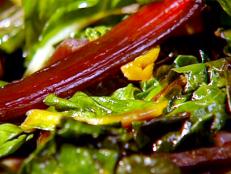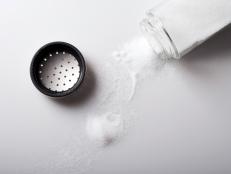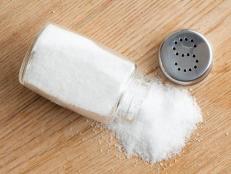Nutrition News: Scary Dairy Discovery, Pesco-Vegetarianism Pays Off and a Colorful Key to Healthy Food Choices

What’s in your milk? Possibly antibiotics that are not supposed to be there. The FDA spot-checked milk from about 2,000 dairy farms and, according to a new report, found six unauthorized drugs, including florfenicol, ciproflaxacin and sulfamethazine, in a small but alarming number of samples. The antibiotics found are not among those the agency usually tests for, NPR reports, because none of them have been approved for use on lactating cows; the regulations are aimed at preventing drug residues from entering the milk supply. But farmers may be using these unauthorized drugs to reduce illness in the herds while skirting detection. The FDA may have difficulty tracking the farms responsible for the antibiotics-tainted milk, but it has now launched an effort to prevent use of the unauthorized drugs on dairy cattle.
Chalk one up for the vegetarians. A large new study, published in JAMA Internal Medicine , has found that eating a vegetarian diet — especially if it includes fish — greatly lowers the risk of colorectal cancer. According to the study, which included 77,659 participants from Seventh-day Adventist churches across the country, vegetarians had a 22 percent lower risk for colorectal cancer compared with nonvegetarians; vegans had a 16 percent lower risk, ovo-lacto vegetarians (who eat milk and eggs) had a 18 percent lower risk, pesco-vegetarians (who eat fish) had a 43 percent lower risk, and semivegetarians had an 8 percent lower risk. Meat eaters in the study were “at the low end of the meat consumption spectrum,” lead author Dr. Michael J. Orlich, of Loma Linda University, told The New York Times, “but even compared to a moderate intake of meat, a zero intake looks better, with or without fish.”
Making healthier decisions about the foods we buy and eat may be as simple as responding to the colors of your neighborhood traffic light. When foods are labeled with red, yellow or green, indicating that they are either high, medium or low in fat, sugar or salt, consumers make more healthful decisions than they do when confronted with current standard nutrition-information labels, according to a new study conducted by the University of Bonn, in Germany. "The traffic light label appears to enable the study participants to better resist unhealthy foods compared to a label containing the traditional information on grams and percentages of the particular ingredients,” study researcher professor Dr. Bernd Weber said, adding that it “increases the weight consumers place on healthiness in their decision." Just so long as they look both ways before they eat.

































